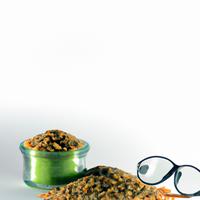
1 serving (100 grams) contains 353 calories, 25.8 grams of protein, 1.1 grams of fat, and 63.0 grams of carbohydrates.

Log this food in SnapCalorie

Nutrition Information
Calories |
706 | ||
|---|---|---|---|
% Daily Value* |
|||
| Total Fat | 2.2 g | 2% | |
| Saturated Fat | 0.4 g | 2% | |
| Polyunsaturated Fat | 0 g | ||
| Cholesterol | 0 mg | 0% | |
| Sodium | 12 mg | 0% | |
| Total Carbohydrates | 126 g | 45% | |
| Dietary Fiber | 21.4 g | 76% | |
| Sugars | 4 g | ||
| protein | 51.6 g | 103% | |
| Vitamin D | 0 mcg | 0% | |
| Calcium | 112 mg | 8% | |
| Iron | 13 mg | 72% | |
| Potassium | 1354 mg | 28% | |
* Percent Daily Values are based on a 2,000 calorie diet. Your daily values may be higher or lower depending on your calorie needs.
Food Attributes
Source of Calories
About Uncooked lentils
Uncooked lentils are small, lens-shaped legumes that have been a staple in diets worldwide, particularly in South Asian, Middle Eastern, and Mediterranean cuisines. Packed with protein, fiber, and complex carbohydrates, lentils are a nutrient-rich powerhouse ideal for vegetarian and vegan diets. They're excellent sources of iron, folate, and magnesium, which support energy production, heart health, and cellular function. Lentils are also low in fat and cholesterol-free, making them a heart-healthy option. Their high fiber content aids in digestion and helps maintain stable blood sugar levels. However, uncooked lentils contain antinutrients like lectins and phytic acid, which can interfere with nutrient absorption unless properly rinsed and cooked. With their versatility and nourishing profile, lentils are a must-have pantry staple for soups, stews, salads, and more.



